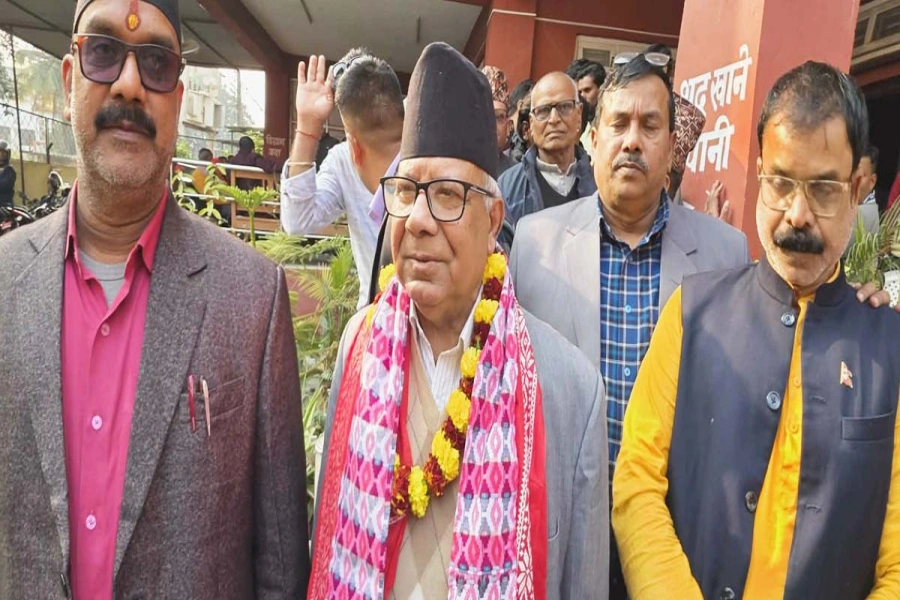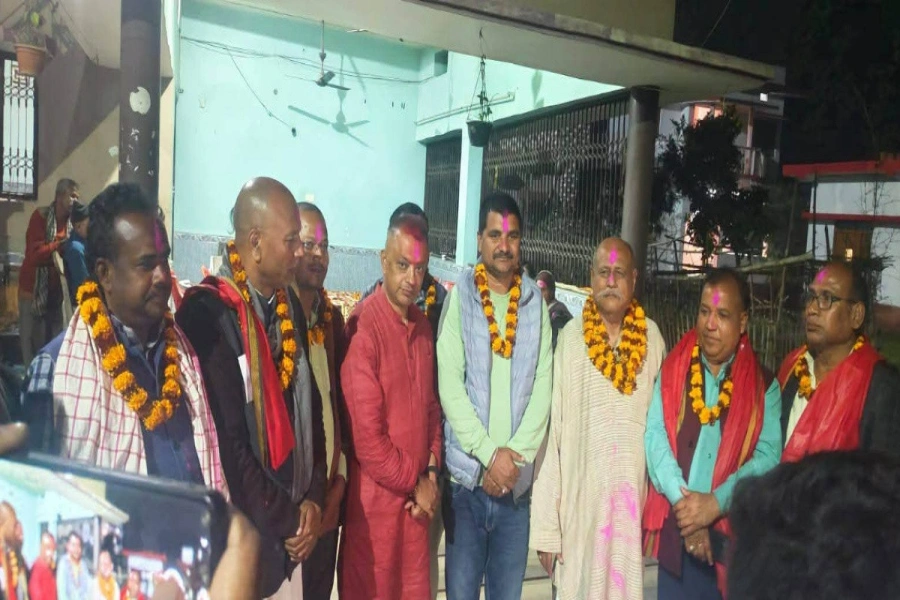Hasan Shrestha, an accountant at Sanima Bank has been listening to Jerusha Rai’s music for the past three years now. As Hasan heard that Jerusha—Nepali songwriter and music producer based in Texas, US, is performing at Beer N’ Cheers, Jhamiskhel on February 29, he hurriedly reached thereafter attending Nepathya’s concert.
“I’m excited to witness Jerusha’s live performance,” says Hasan. “I first discovered her song ‘Barud’ when I randomly played the music on YouTube. Then, I fell in love with her music and I listened to her other playlists as well.”
There were many more avid fans at the event like Hasan, where they even didn’t care about proper chairs, some sat on the floor and others just stood up to witness Jerusha’s live performance.
She began her gig with a cover song ‘Akashaima Chil Udyo’ followed by several original numbers like ‘Native Stranger’, ‘Parade’, ‘Wolverine,' ‘Sunsaan’ ‘Barod’ ‘Aba’ from her first album ‘A Dark Place To Think’ and second album ‘Sunsaan’, respectively. She was supported by Mannu Shahi (on guitars) and Birat Basnet (on percussions), together known as Jaire.
And My City’s Kiran Lama caught up with Jerusha after the event and here’s what she shared about her musical journey and more:
Videos to Document Kirat Rai Culture

Did you expect overwhelming support from the crowd in this gig?
I didn’t expect that people also listen to my actual album. I think because of support from my musician colleagues, many people came to my gig.
When you began your musical career, you produced pure western indie music. But in your second album ‘Sunsaan’, you blended Nepali folk music and western music. What is the reason for that?
I felt isolated when I was in the US, which led me toward the quest to find my roots. Then, as a result, I explored some indigenous music and mixed it with what I have been doing. That’s how my second album ‘Sunsaan’ came to existence.
‘Barud’ is one of your notable tracks, which speak about the Maoist insurgency period in Nepal. How did the idea come and is this related to you?
My father’s home is in Khotang. And I have heard about so many incidents during the Maoist insurgency period. The stories like many Kiratis being abducted and some willingly joining the Maoist inspired me for the song.
Any message you want to convey to your fans?
Like any other sector, people should put their efforts into inclusiveness in music because it will be good for all if we can bring more women and queer people in the Nepali music industry. Moreover, we have to represent the diverse voices especially our roots in the mainstream.
It’s been around a decade for you in the music scenario. So, if you have to compare the time when you started your musical career and now, what kind of changes do you see?
Music scene like rock and indie genre is more booming than before. And I can see the inclusiveness in every field; especially I was pleased when I saw a bunch of women attending the gig, which used to be a rare case a few years back.






































